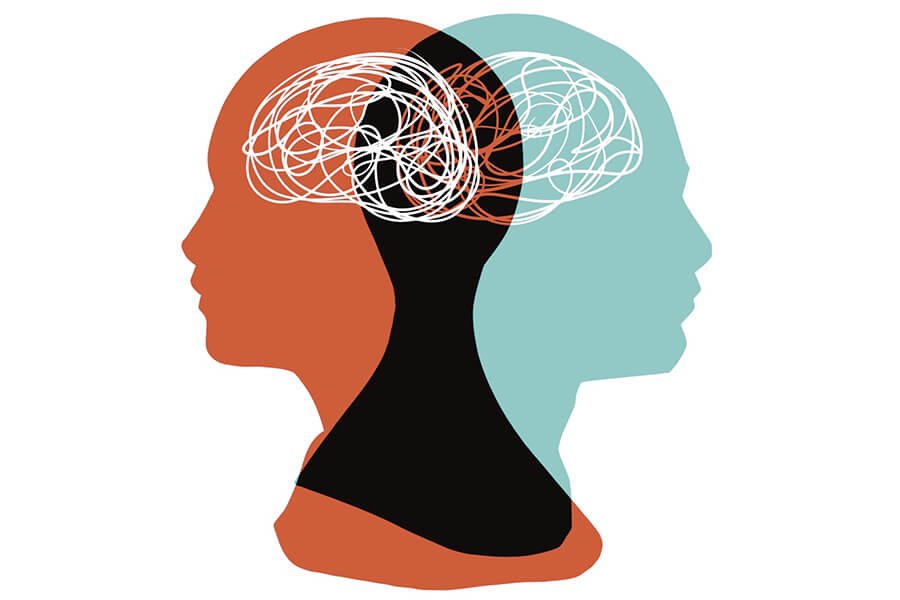
In today’s fast-paced and demanding world, anxiety has become a prevalent issue affecting countless individuals and their mental well-being. The persistent worry, fear, and stress associated with anxiety can significantly hinder one’s ability to function optimally and enjoy life to the fullest. However, there is hope. By actively seeking anxiety relief and prioritizing mental health, individuals can embark on a transformative journey toward improved well-being.
Anxiety relief involves adopting a holistic approach that encompasses various strategies to manage and alleviate symptoms. These strategies may include mindfulness exercises, deep breathing techniques, regular physical activity, adequate sleep, and maintaining a balanced diet. Additionally, engaging in activities that bring joy and relaxation, such as hobbies, spending time in nature, or connecting with loved ones, can also play a vital role in reducing anxiety levels.
Recognizing the importance of anxiety relief is the first step toward achieving improved mental health. By implementing these strategies and seeking professional support when necessary, individuals can regain a sense of control, develop resilience, and experience a more peaceful and fulfilling life. Remember, everyone deserves to live free from the grip of anxiety and embrace a future filled with tranquility and joy.
What is Anxiety?
Anxiety is a natural human response to stress or perceived threats. It is characterized by feelings of apprehension, fear, and unease. While occasional anxiety is a normal part of life, persistent or excessive anxiety can develop into an anxiety disorder, which can significantly impact a person’s daily functioning and overall well-being.
Anxiety often manifests through physical, emotional, and cognitive symptoms. Physical symptoms may include a racing heart, rapid breathing, muscle tension, restlessness, and sleep disturbances. Emotionally, individuals may experience excessive worry, irritability, difficulty concentrating, and a sense of impending doom. Cognitive symptoms can involve intrusive thoughts, excessive self-doubt, and an exaggerated fear of potential dangers or negative outcomes.
Anxiety disorders encompass a range of conditions, such as generalized anxiety disorder (GAD), panic disorder, social anxiety disorder, and specific phobias. These disorders can vary in severity and may require professional intervention for proper diagnosis and treatment.
Understanding anxiety as a complex psychological and physiological response is crucial in order to recognize its impact on mental health. With awareness and appropriate support, individuals can effectively manage anxiety and work towards a healthier and more fulfilling life.
Natural Remedies for Anxiety & Stress
While it’s important to consult with a healthcare professional for an accurate diagnosis and personalized treatment plan, there are some natural remedies that may help alleviate anxiety and stress. Here are a few options:
- Mindfulness and Meditation: Practicing mindfulness and meditation techniques can help calm the mind, increase self-awareness, and reduce anxiety. These practices involve focusing on the present moment and observing thoughts and sensations without judgment.
- Deep Breathing Exercises: Deep breathing exercises, such as diaphragmatic breathing or belly breathing, can activate the body’s relaxation response, helping to decrease anxiety and promote a sense of calm.
- Regular Exercise: Engaging in regular physical activity, such as walking, jogging, yoga, or dancing, can release endorphins, which are natural mood boosters. Exercise also helps reduce stress, improve sleep, and enhance overall well-being.
- Herbal Supplements: Certain herbal supplements, like chamomile, lavender, valerian root, and passionflower, have been used traditionally to reduce anxiety symptoms. However, it’s essential to consult a healthcare professional before taking any herbal supplements, as they may interact with other medications or have side effects.
- Aromatherapy: Using essential oils, such as lavender, bergamot, or chamomile, through inhalation or diluted in carrier oils for massage, can promote relaxation and reduce anxiety.
- Balanced Diet: Consuming a well-balanced diet that includes whole grains, lean proteins, fruits, vegetables, and healthy fats is important for overall mental and physical health. Avoiding excessive caffeine and sugar intake can also help stabilize mood and reduce anxiety symptoms.
- Adequate Sleep: Prioritizing quality sleep is crucial for managing stress and anxiety. Establishing a regular sleep routine, creating a comfortable sleep environment, and practicing relaxation techniques before bed can improve sleep quality.
Remember, while these natural remedies may provide some relief, it’s essential to seek professional advice if anxiety symptoms persist or worsen. A healthcare provider can offer appropriate guidance and suggest additional treatments if necessary.
Treating Anxiety with Medication
Treating anxiety with medication is a common approach that is often prescribed by healthcare professionals, such as psychiatrists or primary care physicians. Medication can be an effective option for individuals with moderate to severe anxiety or those who have not found sufficient relief through other interventions. Here are some key points to consider regarding anxiety medication:
- Types of Medication: Several classes of medications are commonly used to treat anxiety disorders. These may include selective serotonin reuptake inhibitors (SSRIs), serotonin-norepinephrine reuptake inhibitors (SNRIs), benzodiazepines, and beta blockers. The specific medication prescribed will depend on factors such as the type of anxiety disorder, individual symptoms, medical history, and the healthcare provider’s judgment.
- SSRIs and SNRIs: SSRIs and SNRIs are commonly prescribed as first-line treatments for anxiety disorders. They work by increasing the levels of certain neurotransmitters in the brain, such as serotonin, which can help improve mood and reduce anxiety symptoms. These medications often require several weeks of consistent use before their full therapeutic effects are felt.
- Benzodiazepines: Benzodiazepines are a class of medications that provide rapid relief from anxiety symptoms but are generally prescribed for short-term use due to the potential for dependence and abuse. They work by enhancing the effects of a neurotransmitter called gamma-aminobutyric acid (GABA), which helps calm the central nervous system.
- Beta Blockers: Beta blockers are primarily used to manage physical symptoms of anxiety, such as rapid heart rate, trembling, and sweating. They work by blocking the effects of adrenaline, reducing the physiological symptoms associated with anxiety.
- Individualized Treatment: Medication treatment for anxiety should be tailored to the individual’s needs and closely monitored by a healthcare professional. Finding the right medication and dosage may require some trial and error, as individual responses to medications can vary.
- Combination Therapy: In some cases, a combination of medication and psychotherapy (such as cognitive-behavioral therapy) may provide the most effective treatment for anxiety. These approaches can complement each other and address both the underlying causes of anxiety and the associated symptoms.
It is important to note that medication should always be prescribed and monitored by a qualified healthcare professional. They will evaluate the individual’s specific circumstances, provide appropriate guidance, monitor side effects, and make adjustments as needed. Regular communication with the healthcare provider is crucial throughout the medication treatment process to ensure its effectiveness and safety.
Conclusion
In conclusion, treating anxiety with medication can be an effective option for individuals experiencing moderate to severe symptoms or those who have not found sufficient relief through other interventions. Medications such as SSRIs, SNRIs, benzodiazepines, and beta blockers are commonly prescribed to alleviate anxiety symptoms and restore a sense of well-being.
However, it is important to approach medication treatment for anxiety under the guidance of a healthcare professional. They will assess the individual’s specific needs, medical history, and symptoms to determine the most appropriate medication and dosage. Regular monitoring and open communication with the healthcare provider are essential to ensure the medication’s effectiveness and address any potential side effects.
Medication treatment can be combined with other therapeutic approaches, such as psychotherapy, to provide comprehensive care for anxiety disorders. It is important to remember that every individual’s response to medication may vary, and finding the right treatment may involve some trial and error.
Ultimately, the goal of treating anxiety with medication is to reduce symptoms, improve daily functioning, and enhance overall quality of life. By working closely with healthcare professionals and following their recommendations, individuals can take steps towards managing their anxiety and regaining control over their mental well-being.
